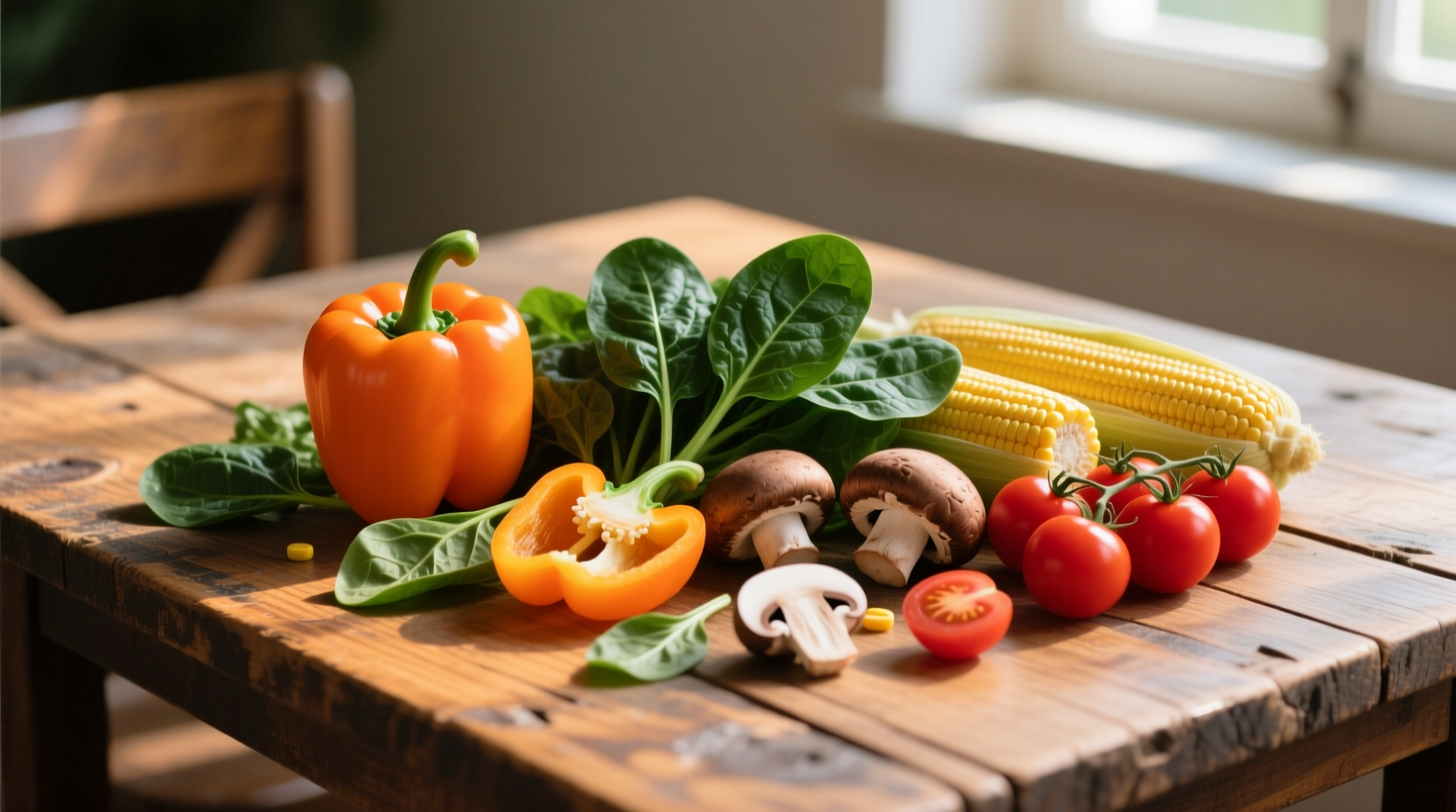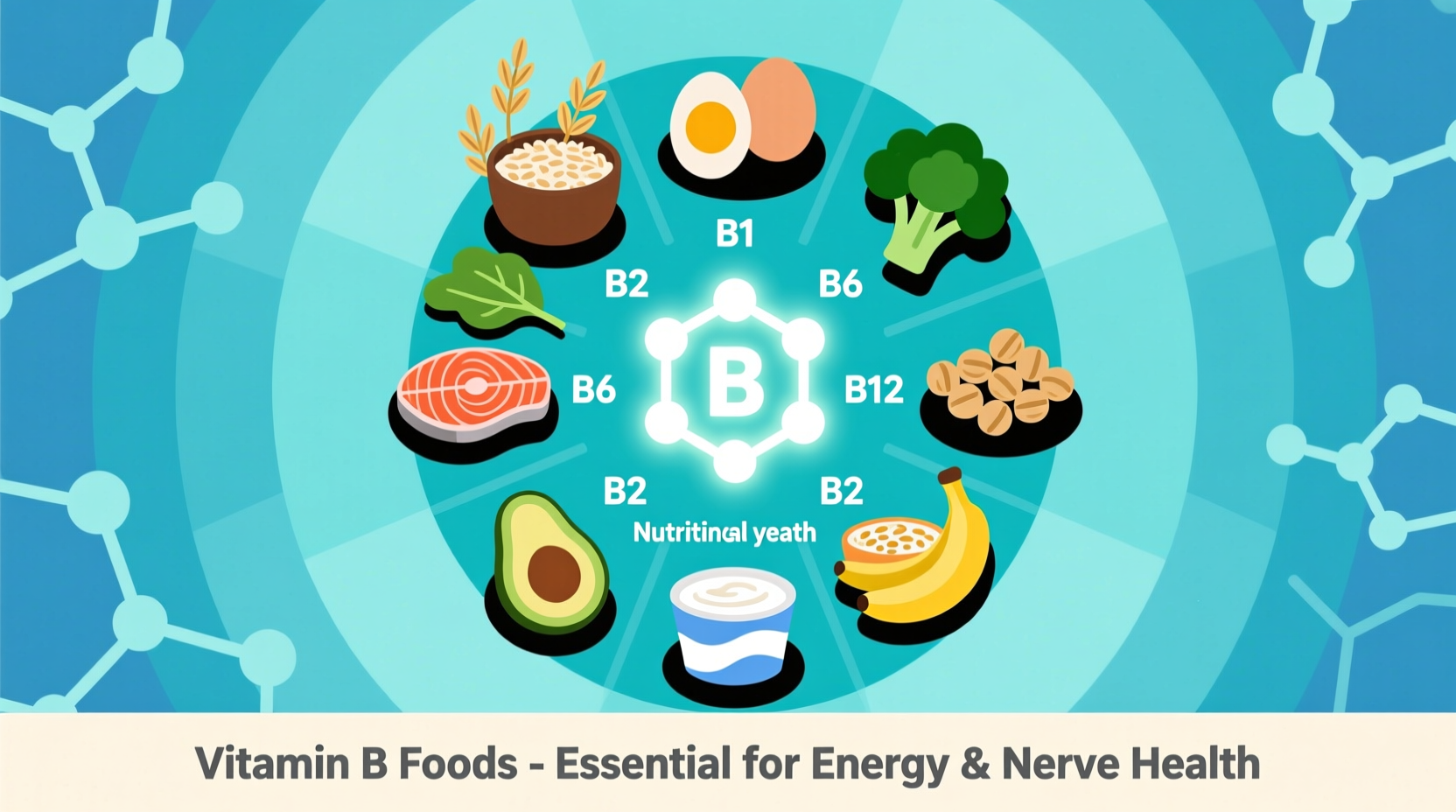Understanding the Vitamin B Complex
When people ask what is vitamin b food, they often misunderstand that vitamin B refers to a single nutrient. In reality, the B vitamin complex comprises eight distinct water-soluble vitamins that work synergistically but serve different biological functions. Unlike fat-soluble vitamins, your body doesn't store B vitamins long-term, making regular consumption of vitamin B rich foods essential.
According to the National Institutes of Health, B vitamins play critical roles in cellular metabolism, red blood cell formation, and nervous system function. Deficiencies can cause fatigue, anemia, skin issues, and neurological problems. The good news? Most people can meet their needs through a balanced diet of natural food sources of vitamin B complex.

The 8 B Vitamins and Their Top Food Sources
Each B vitamin has unique dietary sources. Here's what nutrition science reveals about optimal vitamin B food groups:
Vitamin B1 (Thiamine)
Essential for converting carbohydrates into energy. The USDA FoodData Central shows these as top sources:
- Fortified breakfast cereals (1.5mg per serving)
- Pork chops (0.7mg per 3oz)
- Sunflower seeds (0.5mg per ounce)
- Black beans (0.4mg per cup)
Vitamin B2 (Riboflavin)
Crucial for energy production and cellular function. Harvard T.H. Chan School of Public Health identifies these as excellent sources:
- Beef liver (2.9mg per 3oz)
- Fortified milk (0.3mg per cup)
- Almonds (1.2mg per ounce)
- Spinach (0.4mg per cup cooked)
Vitamin B3 (Niacin)
Supports skin health and nervous system function. The Academy of Nutrition and Dietetics recommends these high vitamin B foods:
- Tuna (20mg per 3oz)
- Chicken breast (14mg per 3oz)
- Peanuts (20mg per cup)
- Mushrooms (5mg per cup)
| B Vitamin | Primary Functions | Daily Requirement (Adults) | Top 3 Food Sources |
|---|---|---|---|
| B1 (Thiamine) | Energy metabolism, nerve function | 1.1-1.2mg | Pork, sunflower seeds, fortified cereals |
| B2 (Riboflavin) | Cellular growth, energy production | 1.1-1.3mg | Liver, dairy, almonds |
| B3 (Niacin) | Skin health, cholesterol management | 14-16mg | Tuna, chicken, peanuts |
| B5 (Pantothenic Acid) | Hormone production, cholesterol synthesis | 5mg | Mushrooms, avocados, eggs |
| B6 (Pyridoxine) | Brain development, immune function | 1.3-1.7mg | Chickpeas, salmon, potatoes |
| B7 (Biotin) | Hair, skin, nail health | 30mcg | Egg yolks, liver, nuts |
| B9 (Folate) | DNA synthesis, red blood cell formation | 400mcg DFE | Leafy greens, lentils, asparagus |
| B12 (Cobalamin) | Nerve function, red blood cell formation | 2.4mcg | Clams, beef liver, fortified foods |
Building a Vitamin B-Rich Diet
Creating meals with comprehensive B vitamin food sources doesn't require complicated planning. The key is dietary variety. Consider these practical strategies:
Breakfast Boosters
Start your day with fortified whole-grain cereal (providing B1, B2, B3, B6, B9) paired with milk (B2, B12) and a banana (B6). This combination delivers five different B vitamins in one meal.
Lunch Solutions
A chickpea salad with spinach, avocado, and sunflower seeds provides B6, B9, B5, and B1. Add a hard-boiled egg for B12 and B7 to create a complete B vitamin profile.
Dinner Decisions
Salmon (B3, B6, B12) with roasted asparagus (B9) and black beans (B1, B9) makes a powerhouse dinner. The National Health and Nutrition Examination Survey shows this combination covers over 100% of daily requirements for six B vitamins.
Special Dietary Considerations
Certain populations need to pay special attention to their vitamin B food intake:
Vegans and Vegetarians
Plant-based diets often lack vitamin B12, which primarily comes from animal products. The Academy of Nutrition and Dietetics recommends fortified nutritional yeast, plant milks, and cereals as reliable sources. For optimal absorption, choose products providing at least 25% of the daily value per serving.
Older Adults
As we age, our ability to absorb vitamin B12 decreases. The NIH reports that 10-30% of adults over 50 have reduced stomach acid needed for B12 absorption. Including both animal-based sources and fortified foods ensures adequate intake for this demographic.
Pregnant Women
Folate (B9) is critical during early pregnancy. The CDC recommends 400mcg of folic acid daily before conception and during early pregnancy to prevent neural tube defects. While supplements are often advised, dietary sources like lentils, spinach, and avocado provide additional nutrients.
Common Misconceptions About Vitamin B Foods
Several myths persist about vitamin B complex foods. Let's clarify:
- "Energy-boosting" claims: While B vitamins help convert food to energy, they don't provide immediate energy boosts unless you're deficient. The European Food Safety Authority confirms B vitamins support normal energy metabolism but aren't stimulants.
- "More is better" fallacy: Excess water-soluble B vitamins are excreted, but extremely high doses from supplements can cause issues. Food sources provide balanced amounts without risk.
- "All B vitamins come from meat": While animal products provide B12, plant foods offer excellent sources of other B vitamins. A varied plant-based diet can meet most B vitamin needs except B12.
Practical Tips for Maximizing Vitamin B Intake
Preserving B vitamins in cooking matters since many are water-soluble and heat-sensitive:
- Steam vegetables instead of boiling to prevent B vitamin leaching
- Store grains in cool, dark places as light degrades B vitamins
- Consume fresh produce quickly as B vitamins degrade over time
- Pair vitamin C-rich foods with plant-based iron sources to enhance absorption of certain B vitamins











 浙公网安备
33010002000092号
浙公网安备
33010002000092号 浙B2-20120091-4
浙B2-20120091-4